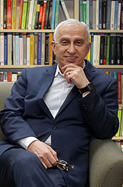Over the past nine months, the entire world has been fully consumed in dealing with and learning how to manage the Coronavirus (COVID-19) health pandemic. Globally, all kinds of resources have been allocated to stop the fast spread of this virus and bring this global health crisis under control. Regrettably, while the whole world has been preoccupied in dealing with COVID-19, less attention has been given to other humanitarian causes such as initiatives dealing with malnutrition and hunger, poverty, water and other natural resource availability, as well as supporting those with chronic health conditions and physical and cognitive disabilities, among others. From Syria to Sudan, there are approximately 125 million people around the world who rely on outside assistance, and unfortunately during these times, these groups of people have been given less focus due to the urgency and necessity of dealing with COVID-19 (Source: OXFAM International). In addition to this large population of individuals in needs of assistance there are also nearly 80 million displaced individuals and families around the world living in very undesirable and in many cases unlivable conditions (Source: UNHCR – The UN Refugee Agency).
Knowing that the majority of assistance for different humanitarian causes around the world comes from the Western part of the world (specifically economically privileged countries) and that everyone has been wholly occupied with the COVID-19 pandemic, the result has been a very sharp decline of the level of assistance generated from the Western world to support all these individuals. This has left millions of people around the world on their own to deal with their horrible living conditions and many other challenges, all while they too are experiencing the impacts of COVID-19. These communities have a fraction of the resources available that more developed regions in the Western world have for dealing with the virus outbreak.
Although there are all kinds of misleading claims that the COVID-19 virus has not spread widely in impoverished countries and among populations of displaced people, this is false. The truth of the matter is that due to the unavailability of testing within these communities there is very little accurate data available to anyone showing the severity of the spread of this virus within these communities.
Let us not forget that our commitment and support for those who are less fortunate should not be diminished during the COVID-19 health pandemic. The communities and individuals who can benefit from our assistance and compassion, need it now more than ever, and cannot wait until this health pandemic is over. We all are part of one human race, brothers and sisters who all came originally from the same parents, Adam and Eve, and the calamity of one crisis should not impact our understanding, compassion, and willingness and ability to aid those who are desperately in need of our assistance.
At WFCF, our commitment to those less fortunate children around the world and their communities who benefit from our assistance has not been forgotten nor diminished. Our leadership and volunteers are unselfishly committed to carrying out the mission of WFCF by, “supporting projects that promote the health and welfare needs of underprivileged communities and orphaned children with disabilities in developing countries,” while they are also trying to deal with the challenges of COVID-19 in their immediate communities and surroundings.

Dr. Mehdi Khosrow-Pour
Executive Director
World Forgotten Children Foundation (WFCF)



